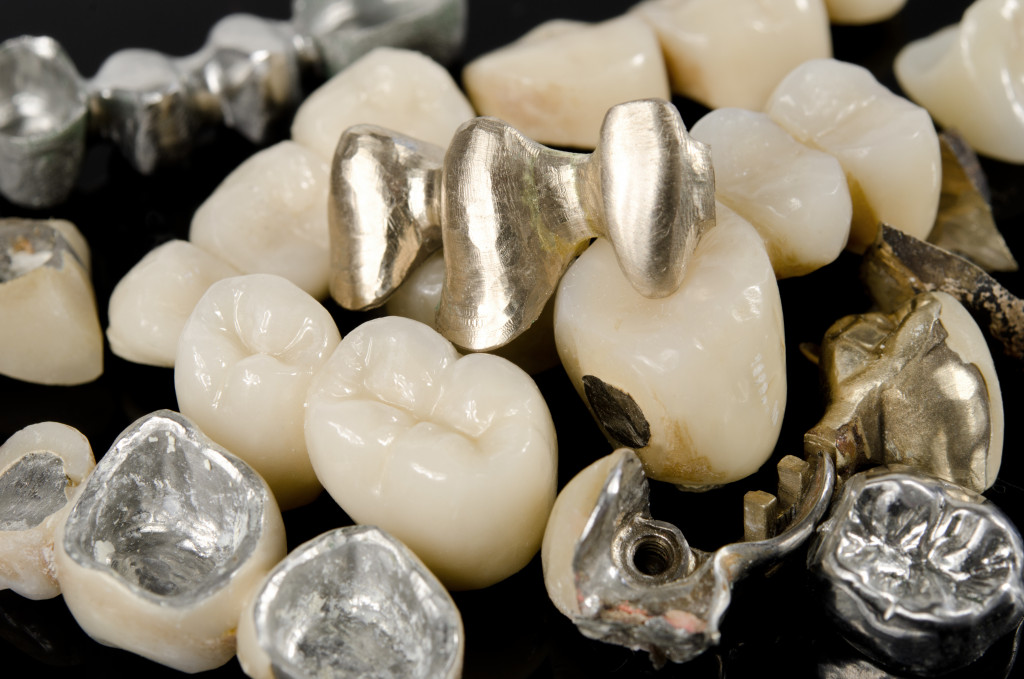- Hormonal fluctuations in women, from puberty to menopause, can significantly impact oral health, leading to potential tooth loss.
- Each stage of a woman’s life—puberty, pregnancy, menstrual cycle, menopause, and hormone replacement therapy—carries unique oral health risks.
- Tooth loss can be addressed through various methods, such as implants, bridges, crowns, and dentures, each with pros and cons.
- Regular oral hygiene, a balanced diet, and awareness of hormonal changes are crucial preventive measures against tooth loss.
- Regular dental visits are essential for early detection and appropriate treatment of any hormonal-oral health issues.
As a woman, you may be familiar with the impact of hormones on your body throughout various stages of life. From puberty to pregnancy to menopause, hormonal changes can significantly impact your health. Did you know that these hormone fluctuations can also affect your oral health? Studies have shown that there is a connection between hormones and tooth loss. Understanding how hormones affect your teeth can help you make informed decisions about your oral care.
Hormones in Women
Women are particularly prone to hormone-related conditions, such as gingivitis and periodontitis. During puberty, estrogen levels increase, which can cause an influx of bacteria in the mouth. This is why it’s so crucial for young women to establish a good oral care routine early on. Here are some connections between hormones and women’s dental health.
1. Puberty
During puberty, hormone levels in the body increase and fluctuate. These hormonal changes can increase plaque buildup and gum inflammation, ultimately leading to gum disease and tooth loss. Maintaining good oral hygiene habits during this time, including regular dental checkups, cleanings, and brushing and flossing daily, is essential.

2. Pregnancy
Pregnancy is a time of significant hormonal changes. These changes can cause an increase in gum inflammation and bleeding, also known as pregnancy gingivitis. Gingivitis can lead to periodontitis, a more severe form of gum disease resulting in tooth loss. It is crucial to inform your dental team if you are pregnant or planning to become pregnant to ensure proper care and treatment.
3. Menstrual Cycle
Hormonal changes throughout the menstrual cycle can also impact oral health. Women may notice increased gum bleeding and swelling during certain cycle stages. These symptoms are transient and typically resolve after the menstrual period. However, maintaining good oral hygiene and regular dental visits can help prevent long-term damage.
4. Menopause
As women age, hormone levels decline, leading to menopause. This hormone decrease can cause several oral health concerns, including dry mouth, bone loss in the jaw, and an increased risk of tooth loss. Women who experience menopause should be vigilant about their oral hygiene habits and seek regular dental care to maintain their oral health.
5. Hormone Replacement Therapy
Women undergoing hormone replacement therapy (HRT) may have an increased risk of gum disease. Estrogen and progesterone supplementation can mask symptoms of gum disease by reducing inflammation, making it difficult to diagnose and treat. Women undergoing HRT should inform their dental team to receive appropriate care and treatment.
How to Deal With Tooth Loss Among Women
There are various ways to deal with tooth loss among women. Here are four ways:
Implants
It’s essential to replace any missing tooth. One of the best ways to replace missing teeth is with robust dental implant procedures. During these procedures, implants are artificial roots surgically implanted into the jawbone to act as tooth replacements. Dental implants can last for years and help preserve bone in the jaw.

Bridges
Bridges are made of false teeth fused to replace missing teeth. They are typically attached to natural teeth on either side of the gap in the smile. While bridges can last five to 15 years, they require healthy adjacent teeth for support and may cause damage if not properly cared for.
Crowns
Dental crowns can help restore weak teeth and are commonly used to replace missing teeth. Crowns fit over the remaining tooth structure like a cap, protecting it from further damage or decay.
Dentures
Dentures are sets of false teeth attached to a metal frame or plastic base held in place by suction or dental adhesive. While dentures are cost-effective, they may require regular adjustments and replacements as the jawbone changes shape.
Prevention
The best way to avoid tooth loss among women is through prevention. Establishing a healthy oral care routine, including regular brushing, flossing, and dental checkups, can help maintain your teeth and reduce the risk of gum disease. A balanced diet with plenty of nutrient-rich vegetables and fruits can promote oral health. Additionally, women should be aware of any hormonal changes affecting their oral health and inform their dental team about their medical history.
Understanding how hormones can affect oral health for women is essential for maintaining good dental hygiene habits and preventing tooth loss. Regular visits to your dental team will ensure that any problems are caught early and treated appropriately. With proper care, you can maintain a healthy smile throughout all stages of life.

